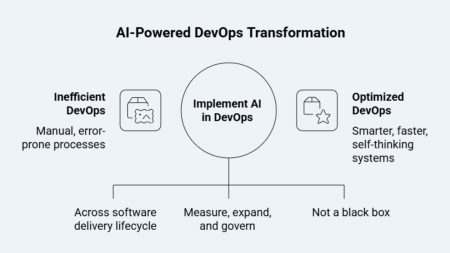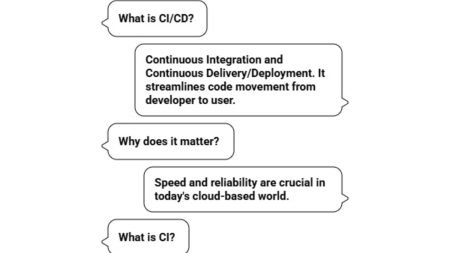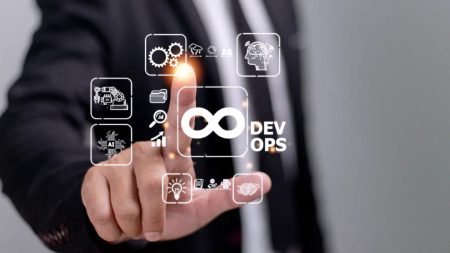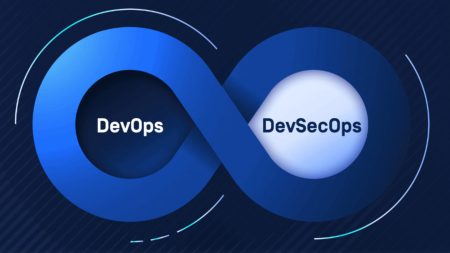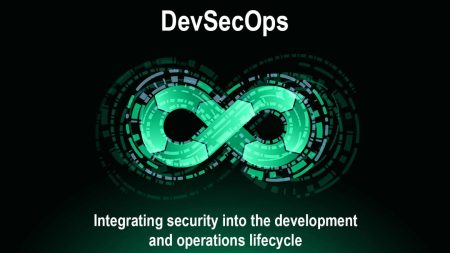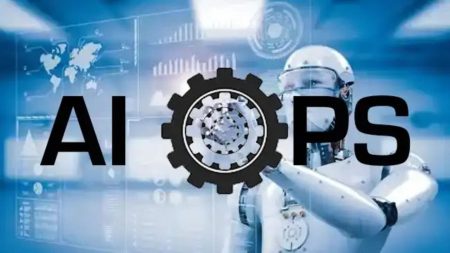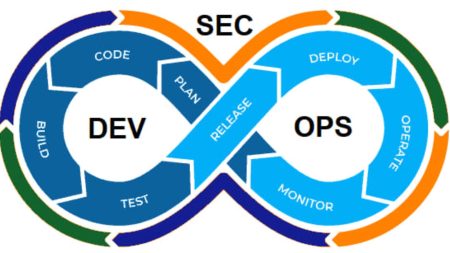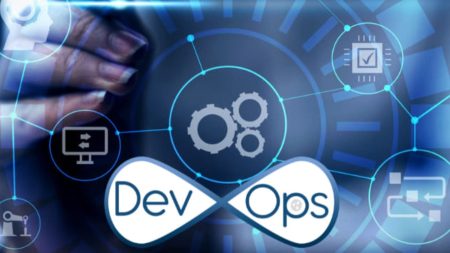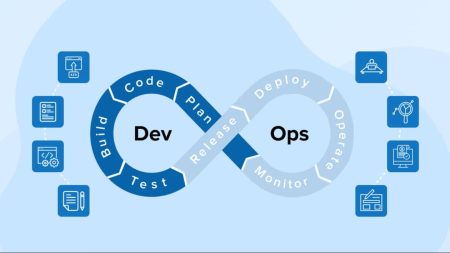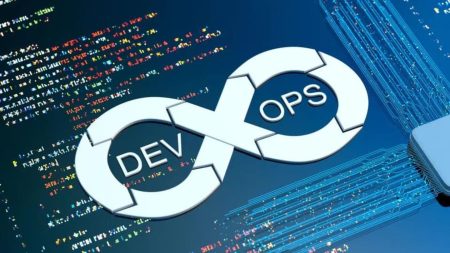AI Revolution in Software Development
The world of DevOps is fast-paced and ever-changing. Like a high-stakes chess game, every move must be precise, calculated, and executed with speed. But what if you had a grandmaster analyzing every possible outcome, preventing mistakes before they happen? That’s exactly what AI is doing in the world of DevOps. By integrating Artificial Intelligence AI into DevOps, organizations can enhance automation, efficiency, and accuracy. But how does this work? And what does it mean for the future of software development and operations? What are the nuts and bolts of AI in DevOps, from its core advantages to real-world applications and future implications?
The Role of AI in DevOps
Think of DevOps as an intricate relay race. Each step, from coding to deployment, must be executed smoothly. However, traditional methods rely heavily on manual intervention, leaving room for human error and inefficiencies. The game is changed by AI through the automation of key tasks, optimization of workflows, and prediction of potential failures before they disrupt production. A 2023 report by Gartner found that companies implementing AI in DevOps achieved a 20% increase in deployment frequency and a 40% reduction in production incidents. These numbers don’t lie – AI is no longer a luxury but a necessity.
Key Benefits of AI for DevOps
- Enhanced Automation – AI-driven automation streamlines testing, monitoring, and security, allowing teams to focus on higher-value tasks.
- Intelligent Monitoring – Artificial Intelligence based monitoring tools detect anomalies, flagging issues before they escalate.
- Predictive Analysis – By analyzing past incidents, AI predicts potential system failures and recommends proactive solutions.
- Faster Development Cycles – Automated testing and AI-assisted debugging significantly reduce the time spent on troubleshooting.
- Improved Security – AI-driven security mechanisms can identify vulnerabilities before they are exploited, strengthening cybersecurity defenses.
Netflix as Real-World Example
Netflix leverages AI to optimize its DevOps pipelines. By employing machine learning models, the company predicts server failures before they occur, ensuring seamless streaming for millions of users. Their AI-based chaos engineering practice stress-tests their infrastructure, identifying weak points before they cause real-world disruptions.
Generative AI in DevOps is the Next Big Leap
Generative AI is like a tireless apprentice, continuously learning from past code, logs, and workflows to enhance development processes. It goes beyond automation, actively creating solutions rather than just executing them.
How Generative AI Transforms DevOps?
- Automated Code Generation: Artificial Intelligence (AI) tools like GitHub Copilot assist developers by suggesting code snippets in real-time.
- Test Case Creation: Generative AI can draft test cases, reducing manual workload and increasing coverage.
- Infrastructure as Code (IaC) Optimization: AI analyzes configurations to suggest performance improvements.
- Incident Resolution: AI-driven chatbots provide real-time solutions to common DevOps problems, reducing downtime.
Case Study: JPMorgan Chase
JPMorgan Chase adopted AI-driven coding assistants, boosting developer efficiency by 20%. This translates into faster deployments and fewer production errors, demonstrating how AI is becoming a critical DevOps ally.
How to Use AI in DevOps Effectively?
Using AI in DevOps isn’t just about plugging in a tool and expecting miracles. It requires strategic implementation. Here’s a roadmap for integrating AI into your DevOps workflow:
- Automate Repetitive Tasks – Identify time-consuming, repetitive tasks that AI can handle – such as CI/CD pipeline optimizations, log analysis, and infrastructure monitoring.
- Utilize AI-Driven Monitoring Tools – Tools like Datadog, Splunk, and New Relic provide intelligent monitoring, alerting teams to anomalies before they impact users.
- Implementing AI in Testing – AI-based testing tools like Mabl and Test.ai can automate test case generation and execution, improving test accuracy and efficiency.
- Leverage AI for Security – AI-powered security platforms like Darktrace detect and mitigate cyber threats in real-time, safeguarding applications against potential attacks.
- Continuously Train AI Models – Artificial Intelligence is only as good as the data it learns from. Regularly updating AI models with fresh datasets ensures optimal performance and relevance.
AI ML in DevOps Like Symbiotic Relationship
Artificial Intelligence (AI) and Machine Learning (ML) go hand in hand in DevOps. AI provides automation, while machine learning in DevOps analyzes vast datasets to generate insights. Together, they create a powerful feedback loop, enhancing benefits of DevOps.
Key Applications of AI/ML in DevOps
- Log Analysis & Anomaly Detection: AI parses logs at lightning speed, identifying irregular patterns.
- Performance Optimization: Artificial Intelligence suggests real-time performance tweaks for applications and infrastructure.
- Incident Management: AI can prioritize and suggest resolutions for incidents based on historical data.
- Capacity Planning: Predictive AI estimates future resource needs, preventing over-provisioning or underutilization.
Industry Insight: AIOps Growth
AIOps (AI for IT Operations) platforms are seeing explosive growth. According to MarketsandMarkets, the AIOps market is expected to grow from $2.55 billion in 2021 to $11.02 billion by 2026, driven by increased demand for intelligent IT operations.
Challenges of Using AI in DevOps
Despite its benefits, AI for DevOps isn’t without its hurdles. Here are a few key challenges:
- Data Quality Issues – AI models require high-quality data for accurate predictions. Incomplete or biased data can lead to unreliable outcomes.
- Resistance to Change – DevOps teams accustomed to traditional workflows may resist AI adoption. Proper training and change management are crucial.
- Integration Complexity – Integrating AI into existing DevOps pipelines requires careful planning to avoid disruptions.
- Ethical Concerns – AI decision-making must be transparent and free from bias to ensure fair outcomes.
- Job Security Fears – While AI automates tasks, it doesn’t replace human expertise. Companies must reskill employees to work alongside AI rather than against it.
The Future of Artificial Intelligence in DevOps
AI in DevOps is still in its infancy, but its potential is limitless. Here’s what the future holds:
- Self-Healing Systems: AI-driven systems will automatically detect and resolve issues without human intervention.
- Autonomous DevOps Pipelines: AI will manage end-to-end DevOps processes, further reducing manual workload.
- Enhanced Collaboration: AI-powered tools will facilitate better communication between development, security, and operations teams.
- Greater Predictive Capabilities: Artificial Intelligence will refine its ability to foresee infrastructure failures, enabling even more proactive responses.
AI is a DevOps Catalyst, Not a Replacement
AI for DevOps isn’t about replacing developers and operations teams – it’s about empowering them. By automating tedious tasks, predicting potential failures, and enhancing DevOps security, AI allows professionals to focus on what they do best: innovating. In a world where speed, accuracy, and resilience are paramount, integrating AI into DevOps is no longer optional – it’s imperative. Organizations that leverage AI will lead the charge in delivering faster, more reliable, and more secure software. So, the question isn’t whether to adopt AI in DevOps – it’s how fast can you get started?


